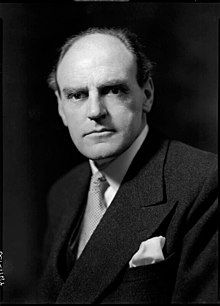The Lord Reith | |
|---|---|
 Reith in 1934 | |
| 1st Director-General of the BBC | |
| In office 1 January 1927 – 30 June 1938 | |
| Monarchs | George V Edward VIII George VI |
| Preceded by | Position established |
| Succeeded by | Frederick Ogilvie |
| Minister of Information | |
| In office 5 January 1940 – 12 May 1940 | |
| Prime Minister | Neville Chamberlain |
| Preceded by | Hugh Macmillan |
| Succeeded by | Duff Cooper |
| Personal details | |
| Born | John Charles Walsham Reith 20 July 1889 Stonehaven, Kincardineshire, Scotland |
| Died | 16 June 1971 (aged 81) Stockbridge, Edinburgh, Midlothian, Scotland |
| Resting place | Rothiemurchus chapel, Aviemore, Inverness-shire, Scotland |
| Spouse |
Muriel Reith (m. 1921) |
| Children | 2, including Marista |
| Occupation |
|
John Charles Walsham Reith, 1st Baron Reith, KT, GCVO, GBE, CB, TD, PC (/ˈriːθ/; 20 July 1889 – 16 June 1971) was a Scottish broadcasting executive who established the tradition of independent public service broadcasting in the United Kingdom. In 1922, he was employed by the BBC, then the British Broadcasting Company Ltd., as its general manager; in 1923 he became its managing director, and in 1927 he was employed as the Director-General of the British Broadcasting Corporation created under a royal charter. His concept of broadcasting as a way of educating the masses marked for a long time the BBC and similar organisations around the world. An engineer by profession, and standing at 6 feet 6 inches (1.98 m) tall, he was a larger-than-life figure who was a pioneer in his field.[1]
The BBC's Reith Lectures were instituted in his honour.